2024
Eugenia Pesci (Visiting Fellow @ University of Bremen, Research Centre for East European Studies (Forschungsstelle Osteuropa – FSO) 01.10.2024 – 31.12.2024)
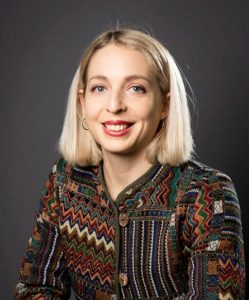 I am a doctoral researcher at the Aleksanteri Institute, University of Helsinki, Finland, and a Marie Skłodowska-Curie researcher within the Horizon 2020-funded project “Mapping Uncertainties, Challenges and Future Opportunities of Emerging Markets: Informal Barriers, Business Environments and Future Trends in Eastern Europe, the Caucasus, and Central Asia (ITN MARKETS)”. My research interests include social and labour market policies and labour precarity in Central Asia, as well as labour relations in the Soviet and post-soviet periods. In 2023-2024, I was a visiting PhD fellow at the Public Opinion Research Institute (Kazakhstan), the OSCE Academy in Bishkek (Kyrgyzstan), and the University of Glasgow (UK). In 2022-2024, I was a board member of the European Society for Central Asian Studies. I have contributed to the third volume of the Global Encyclopedia of Informality (UCL Press) and to the OSCE Academy policy brief series.
I am a doctoral researcher at the Aleksanteri Institute, University of Helsinki, Finland, and a Marie Skłodowska-Curie researcher within the Horizon 2020-funded project “Mapping Uncertainties, Challenges and Future Opportunities of Emerging Markets: Informal Barriers, Business Environments and Future Trends in Eastern Europe, the Caucasus, and Central Asia (ITN MARKETS)”. My research interests include social and labour market policies and labour precarity in Central Asia, as well as labour relations in the Soviet and post-soviet periods. In 2023-2024, I was a visiting PhD fellow at the Public Opinion Research Institute (Kazakhstan), the OSCE Academy in Bishkek (Kyrgyzstan), and the University of Glasgow (UK). In 2022-2024, I was a board member of the European Society for Central Asian Studies. I have contributed to the third volume of the Global Encyclopedia of Informality (UCL Press) and to the OSCE Academy policy brief series.
My dissertation focuses on the construction of unemployment as a social problem and on its regulation through state institutions and policies. By focusing on the cases of Kazakhstan and Kyrgyzstan, I explore how neoliberal policies have shaped the development of labour market institutions and programs in a post-soviet context, and how this plays out in the bureaucratic management of unemployment in public employment offices. Between 2022 and 2023, I conducted a total of six months of fieldwork, during which I collected more than 60 semi-structured interviews with policymakers, mid and low-level bureaucrats, experts, and NGOs.
During my two-month stay at the Research Centre for East European Studies, University of Bremen, I am planning to finalise two empirical chapters of my thesis and to present one of them at a research seminar. As I will enter the last year of my doctoral studies, I am confident that the INREES fellowship program will be extremely useful for the advancement of my monograph, thanks to the possibility of receiving feedback from social policy scholars specialized in the post-soviet region.
Aytaç Yürükçü (Visiting Fellow @ Södertörn University, Centre for Baltic and East European Studies (CBEES) 1.10-30.11.24)
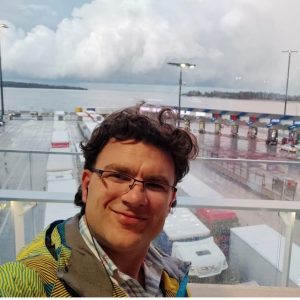 I am currently a doctoral researcher at the Department of Geographical and Historical Studies, University of Eastern Finland. My prior experience includes the coordination of academic events on a global scale as well as communication with academic institutions and research organisations. In addition to that, I have experience providing instruction, presentations, managing academic events, managing academic publications, and editing. My research interests as a historian include war propaganda, memories, communication, and media on the notions of empires, conflicts, diplomacy, and peripheral minorities at the end of the nineteenth century.
I am currently a doctoral researcher at the Department of Geographical and Historical Studies, University of Eastern Finland. My prior experience includes the coordination of academic events on a global scale as well as communication with academic institutions and research organisations. In addition to that, I have experience providing instruction, presentations, managing academic events, managing academic publications, and editing. My research interests as a historian include war propaganda, memories, communication, and media on the notions of empires, conflicts, diplomacy, and peripheral minorities at the end of the nineteenth century.
Specifically, I am interested in war and memory studies by concentrating on the Russo-Turkish War that took place between 1877 and 1878. The subject of my doctoral dissertation is “Imperial War, Collective Memories, and National Identities in the Borderlands of Europe: Identity Formation among Peripheral Minorities During the Russo-Turkish War of 1877–78”. The primary sources of information that I use for my study are newspapers, diaries, reports, telegrams, and letters that pertain to the war which are gathered from various archives and collections. My most recent research study investigates the formation of collective memory in relation to a particular “war” the commemoration of that event, the transformation of individual memories into a more comprehensive national history, and the influence of the war and its aftermath on the nations, communities, and identities of the Baltic and East European regions. By asking, what types of memories did the soldiers generate for themselves as a group through the written stories that they created? In what ways did they lend support to the representations of the war efforts? What impact did these recollections have on the mindset of the general population in Eastern, Central, and Northern Europe?
The fellowship from INREES at Södertörn University will allow me to dedicate my time to researching the Russo-Turkish War of 1877–1878 and its impact on Eastern Europe and the Baltic Region, with a particular focus on archival sources. Diplomatic relations during and after the war added an important dimension to this research in order to analyse Swedish archives, letters, reports, and telegrams that have not yet been used and analysed. Studying the 1877–1878 Russo-Turkish War at the Swedish National Archives is significant for several reasons. Despite Sweden not being a direct combatant in the conflict, there were affiliated Swedish-origin soldiers and officers in the war zone as a part of Finnish military units. The lack of a comparative study that compares different nationalities with different sources and aspects of the war’s participants and diplomatic manoeuvres emphasizes the need for transnational history studies and outlines the specific parameters of research on how national perceptions change during and after the war.
My visiting research serves three distinct purposes: firstly, to continue conducting research in the archives; secondly, to enhance my language skills and write my chapters during the fellowship, thereby expanding my knowledge in the research area; and thirdly, to make a significant contribution to the field of collective memory studies by exploring the preservation, transformation, and utilization of memories related to the imperial war among various groups in Eastern Europe and the Baltics. The opportunity to expand my research network particularly appeals to me, and I am confident that the Centre for Baltic and East European Studies (CBEES) provides an excellent platform for engaging with scholars and academics from diverse fields and engaging in intellectual conversations. Academia.edu UEF Connect LinkedIn
Maria Grigoryeva (Visiting fellow @ University of Tartu, autumn 2024)
I am a PhD researcher at the Aleksanteri Institute (University of Helsinki.) My main interests are the representation of national cultures, folklore and nation-related problems in audio-visual media (film, music clips, video games), the influence of the media on the view of the national culture among broad audiences and on the national identities of the nations depicted, the policies towards of the national cultures, national folklore and minor nations.
The primary media I study is feature films because future films are rich forms of expression that can represent problems from different angles. Furthermore, I have experience in practical filmmaking (as an amateur scriptwriter and film director), which helps me better understand different aspects of cinematic art.
My PhD thesis is titled The Cinematic Finno-Ugric World – Myths and Paradoxes; Establishment of the Common Finno-Ugric Identity via Representation of Folklore in Films Made in Finland, Russia and Estonia. In this project, I explore how the films depicting the Finno-Ugric cultures, such as the Finns, the Estonians, the Sámi and the various Finno-Ugric nations living in the territory of the Russian Federation (the Mari, the Mordivians, the Karelians, etc.), create a separate Finno-Ugric cinematic space, different from the European or Russian cultures. I do so by comparing the films to one another, finding common motives and ideas in these films, studying the cultural and political context of these films and applying them to the relevant literature.
I believe my topic is very relevant nowadays. Due to the crisis caused by Russian aggression in Ukraine, questions of self-identities in the post-Soviet space have become very relevant. The connection between Russia (including the Finno-Ugric nations of Russia) and its European neighbours (including Estonia and Finland) seems to be torn apart. Nevertheless, the crisis can open possibilities for new unions and connections, and I believe culture can serve as an important tool for such connections.
I believe participating in the INREES fellowship at the University of Tartu will benefit my project. My interdisciplinary project includes applying to the Russian, Eurasian, and Finno-Ugric studies. Since there is not only the Eurasian and Russian studies department but also the Finno-Ugrc one at the University of Tartu, the fellowship will help me get different perspectives, consult with scholars working in the field, and dive deeper into the subjects I study. An essential part of my studies is studying Estonian film, national culture and the idea of Estonia being a part of the Finno-Ugric world. Thus, the University of Tartu is a perfect place to get first-hand experience and comprehend Estonian culture.
Among other things, I study the problems of Estonian self-identity, how Estonian culture and film existed during the Soviet Union, and how Estonian films represent ‘(post)-colonial’ relations with Russia. Thus, studying Russian culture and politics from an Estonian perspective, as it happens at the University of Tartu, will benefit my dissertation.
2023
Aytaç Yürükçü (Visiting Fellow @ University of Tartu 15.9-15.11.23)
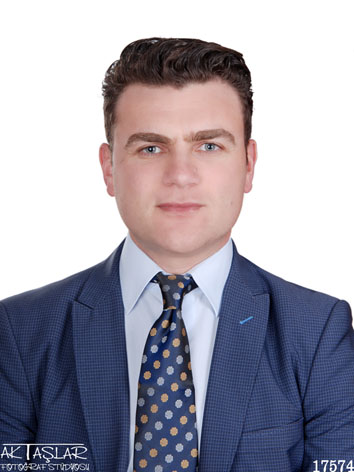 Aytac received B.A. degrees in history and Slavic languages from the department of history at Trakya University in 2009 and the department of Bulgarian language and literature at Ankara University in 2021, respectively. He earned Master of Arts degrees from Trakya University and the University of Hacettepe in History Education and Turkish History Studies, respectively, in 2010 and 2018. In 2013, he began working as a researcher for The Turkish Historical Society (TTK), helping to publish the ‘Belleten Journal’ and planning academic conferences in Turkey, Poland, Iran, India, Macedonia, Kazakhstan, and Kirghizistan.
Aytac received B.A. degrees in history and Slavic languages from the department of history at Trakya University in 2009 and the department of Bulgarian language and literature at Ankara University in 2021, respectively. He earned Master of Arts degrees from Trakya University and the University of Hacettepe in History Education and Turkish History Studies, respectively, in 2010 and 2018. In 2013, he began working as a researcher for The Turkish Historical Society (TTK), helping to publish the ‘Belleten Journal’ and planning academic conferences in Turkey, Poland, Iran, India, Macedonia, Kazakhstan, and Kirghizistan.
In 2019-2020, he held a visiting fellowship grant from the Finnish National Agency for Education (EDUFI-Fellowship) for 12 months prior to beginning his PhD at the University of Eastern Finland (UEF) at the Department of Geographical and Historical Studies (HiMA). He worked on a project at the Karelian Institute (KTL) and the Center for Russian and Border Studies (VERA) at the UEF. The project was titled “First Encounter of Two Nations in the Balkans in the History of Relations between Finland and Turkey: Finnish Soldiers and War Reports During the Russo-Turkish War of 1877–78.”
During the INREES Visiting Period, he will carry out research by focusing on the “Minorities in the Russian Imperial Army: Soldiers’ Participation from the Baltic Region in the Russian-Ottoman War 1877–1878 and Its Effects on the War and the Baltic Community” project. The goal of this multidisciplinary study is to provide a more thorough knowledge of the role of war propaganda and the repercussions of war on communities and public opinion. His research links history, media and communication studies, cultural interactions, nationalism’s mobility, and the emergence of identities at the end of the nineteenth century. Additionally, he would work to establish connections with academics at the University of Tartu who specialize in Russian and East European studies, particularly those at the Johan Skytte Institute of Political Studies and the Center for Eurasian and Russian Studies (CEURUS). His areas of interest in research include journalism, borders and boundaries of empires’, nationalism, identity formation, minorities, cultural encounters, communication, and war propaganda.
Ekaterina Vorobeva (1.7-1.8.2023)
 Ekaterina Vorobeva is an affiliated PhD fellow at the Bremen International Graduate School of Social Sciences and an EU researcher at the Research Centre for East European Studies, the University of Bremen, Germany. She previously worked in several research projects on forced migration, transnationalism, and migrant entrepreneurship in Finland and Malta. Ekaterina has published scientific articles in the Journal of Ethnic and Migration Studies, International Migration, Global Networks, as well as book chapters in edited volumes of Palgrave Macmillan and Springer. Ekaterina’s current research interests include social and economic integration of immigrants, migrant and minority entrepreneurship, transnationalism, and postnationalism.
Ekaterina Vorobeva is an affiliated PhD fellow at the Bremen International Graduate School of Social Sciences and an EU researcher at the Research Centre for East European Studies, the University of Bremen, Germany. She previously worked in several research projects on forced migration, transnationalism, and migrant entrepreneurship in Finland and Malta. Ekaterina has published scientific articles in the Journal of Ethnic and Migration Studies, International Migration, Global Networks, as well as book chapters in edited volumes of Palgrave Macmillan and Springer. Ekaterina’s current research interests include social and economic integration of immigrants, migrant and minority entrepreneurship, transnationalism, and postnationalism.
My PhD project is devoted to the entrepreneurial activities of Central Asian migrants in Russia, a topic that has been largely overlooked in academic debates on regional migration. The study is concerned with the effects produced by the interaction between migrant entrepreneurship, the Russian opportunity structure, and transnational networks. By introducing new qualitative and quantitative data, the research project aims to shed light on the processes of economic integration of Central Asian migrants in Russia. The project utilises unique quantitative and qualitative data; 162 questionnaires and 36 interviews were collected with Uzbek, Tajik and Kyrgyz migrant entrepreneurs in Moscow and St. Petersburg in autumn, 2021. The research project contributes to a better understanding of economic life in the post-Soviet region through the lens of migrant entrepreneurship, enriches the theory of migrant entrepreneurship with findings from non-Western case studies, and develops the theory of transnationalism by exploring the role of transnational networks in migrant business activities.
At the Aleksanteri Institute, I plan to explore the library and other information resources related to migration processes in the post-Soviet space. I look forward to meeting the colleagues who are working on similar topics and studying ethnic relations and human mobility in the region.
Anca Enache (Visiting Fellow @ George Bacovia University of Bacau 1.6-1.9.23)
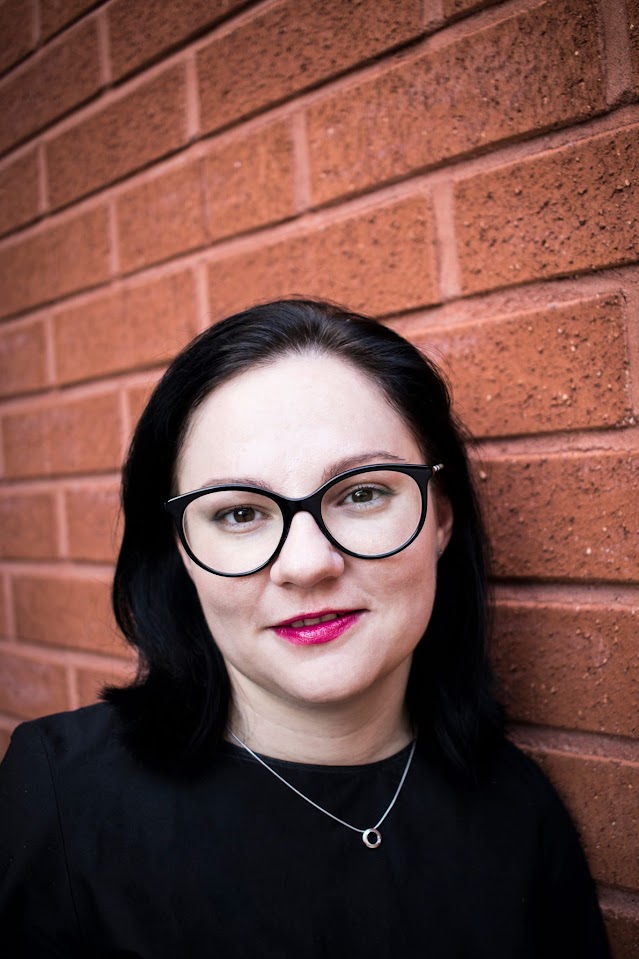 I am a doctoral candidate in social anthropology at the University of Helsinki. My thesis is an ethnography of trans-local bordering practices and how Romanian Roma deprived from residency rights strive to assert temporarily their rights to the city, in practice access to well defined spaces and places in the city of Helsinki. I show that the city is not a homogeneous or static space, but practices of control and exclusion/ inclusion occur at multiple spatial scales and entangle a variety of actors and citizens that have power to define the social orders of different spaces. By exploring the everyday lives in the city, practices of earning money, finding, and establishing temporary shelters, networking to gain access to knowledge and local resources, I document how life in the city unfolds in relation to deeply unequal social, spatial, economic, race and security orders. The study builds on ethnographic materials collected non-consequently between 2014-2017 in Helsinki and in villages and towns in Eastern Romania.
I am a doctoral candidate in social anthropology at the University of Helsinki. My thesis is an ethnography of trans-local bordering practices and how Romanian Roma deprived from residency rights strive to assert temporarily their rights to the city, in practice access to well defined spaces and places in the city of Helsinki. I show that the city is not a homogeneous or static space, but practices of control and exclusion/ inclusion occur at multiple spatial scales and entangle a variety of actors and citizens that have power to define the social orders of different spaces. By exploring the everyday lives in the city, practices of earning money, finding, and establishing temporary shelters, networking to gain access to knowledge and local resources, I document how life in the city unfolds in relation to deeply unequal social, spatial, economic, race and security orders. The study builds on ethnographic materials collected non-consequently between 2014-2017 in Helsinki and in villages and towns in Eastern Romania.
During my time as a visiting research affiliate in Romania I will be working on writing my thesis chapters. Together with a long-term fieldwork collaborator, we are writing a chapter that explores in a collaborative manner witnessing different forms of violence as an ethnographer and research collaborator. We plan to finalize the chapter that will be part of a Book project, during the fellowship. I will also use the time to meet researchers that work on the same topics, in relation to Romanian localities, and state making in Romania, as well as activists and civil society representatives.
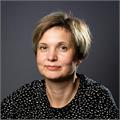 Larissa Shpakovskaya (Visiting Fellow @ Södertörn University– Center for Baltic and East European Studies 1.6-30.6.23 and 1. 8-31.8. 23)
Larissa Shpakovskaya (Visiting Fellow @ Södertörn University– Center for Baltic and East European Studies 1.6-30.6.23 and 1. 8-31.8. 23)
I’m a doctoral candidate in regional studies. I’m a sociologist. I have a long experience of studying social policy, child welfare and social inequality in Russia. In 2021-2022 Larisa received a mobility grant from the Academy of Finland on the project: “Academic Migration from Russia to Finland: institutional cultures, gender and race”. Using post-colonial perspective on sociology of knowledge and feminist critique, the project aims at producing new knowledge about the subjective experience of Russian-speaking women in Finnish universities at the early stages of their careers.
I plan to devote my research visit at Södertorn University to work on academic motherhood, strategies for reconciling work and motherhood, academic career barriers set by motherhood responsibilities, and strategies to overcome these barriers. I will analyze biographical interviews with Russian-speaking women who study and work in Finnish universities at PhD and post-doc levels. Former USSR countries are distinguished by the legacy of Soviet gender equality policy which, on the one hand, supported women’s equality in the public sphere and, on the other hand, prescribed women to be the main care providers in private sphere. The post-Soviet period was characterized by a revival of traditionalist ideology and family values. I hypothesize that in the situation of upward labor migration to the EU women opt between different attitudes and develop coping strategies. I also discuss how the academy and post-colonial structures of academic knowledge production influence female migrant strategies. The outcome of my work in Södertörn University will be an academic article on the studied subject.
Gustav Lindberg (1.6-30.6.23 and 1. 8-31.8. 23)
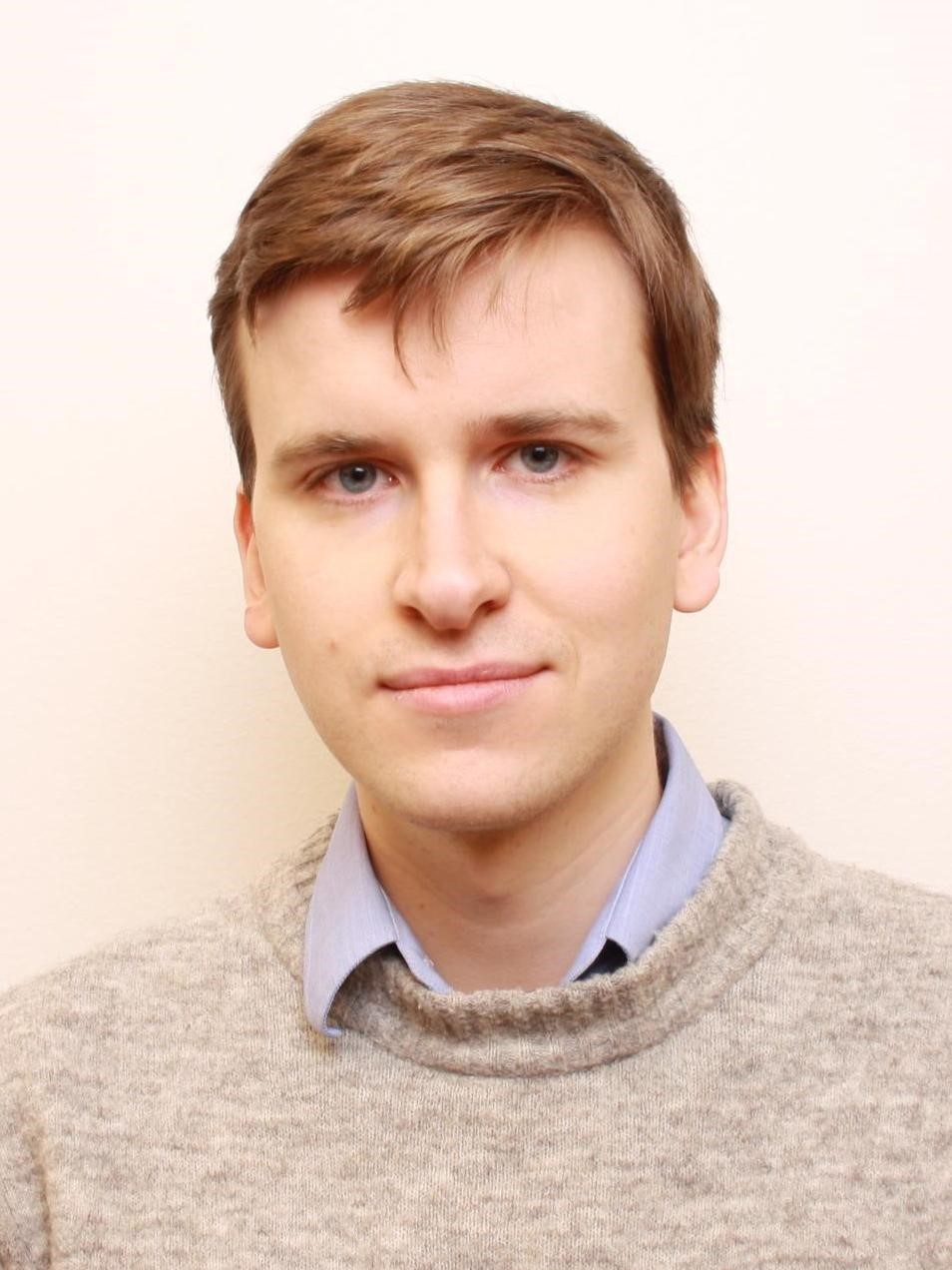 I am a visiting PhD researcher within political science from the Centre of Baltic and Eastern European Studies at Södertörn University. My current research is focused on ethnic relations within the political sphere, primarily in Latvia and Estonia (even though I’m exploring the phenomenon across different countries). Before enrolling as a doctoral student in political science in the fall of 2022, I studied for many years within the humanities and have also worked within a Swedish state agency. Aside from Baltic politics, I have studied the effect of social capital on voting patterns within the context of Swedish post-industrial municipalities. During my stay at the institute, I hope to deepen my knowledge of the complex and fascinating nexus of post-Soviet states.
I am a visiting PhD researcher within political science from the Centre of Baltic and Eastern European Studies at Södertörn University. My current research is focused on ethnic relations within the political sphere, primarily in Latvia and Estonia (even though I’m exploring the phenomenon across different countries). Before enrolling as a doctoral student in political science in the fall of 2022, I studied for many years within the humanities and have also worked within a Swedish state agency. Aside from Baltic politics, I have studied the effect of social capital on voting patterns within the context of Swedish post-industrial municipalities. During my stay at the institute, I hope to deepen my knowledge of the complex and fascinating nexus of post-Soviet states.
During my stay at Aleksanteri Institute, I hope to get the possibility to plan the outline of my dissertation on a focused and efficient level. Primarily, I hope to be able to delve into the theories involving the concept ethnic democracy which I plan to make use of in my dissertation. Hence, I hope to undertake a literature review of the concept and the theories connected to it. It would be highly interesting, given the context of the Aleksanteri Institute, to absorb some of the literature concerning this topic in the Finnish context.
As I am still in the very beginning of my dissertation work, much of what I hope to achieve during the visit will be on the planning stage, and I hope discussing issues methodological, theoretical and more practical issues with senior researchers will help me in outlining a sharpened research plan for the coming years. One practical goal I could have before the end of the visit could be to outline an updated research plan as well as the aforementioned literature review on ethnic democracy.
Lastly, I hope that the even closer proximity to the Baltics will spur me to visit Estonia and Latvia during some stage at the visit. Even though I will not be able to produce any formal research in the countries, a more casual visit would provide a good opportunity to get to know the countries better!
Bradley Reynolds (Visiting Fellow @ University of Tartu 1.5-30.6.23)
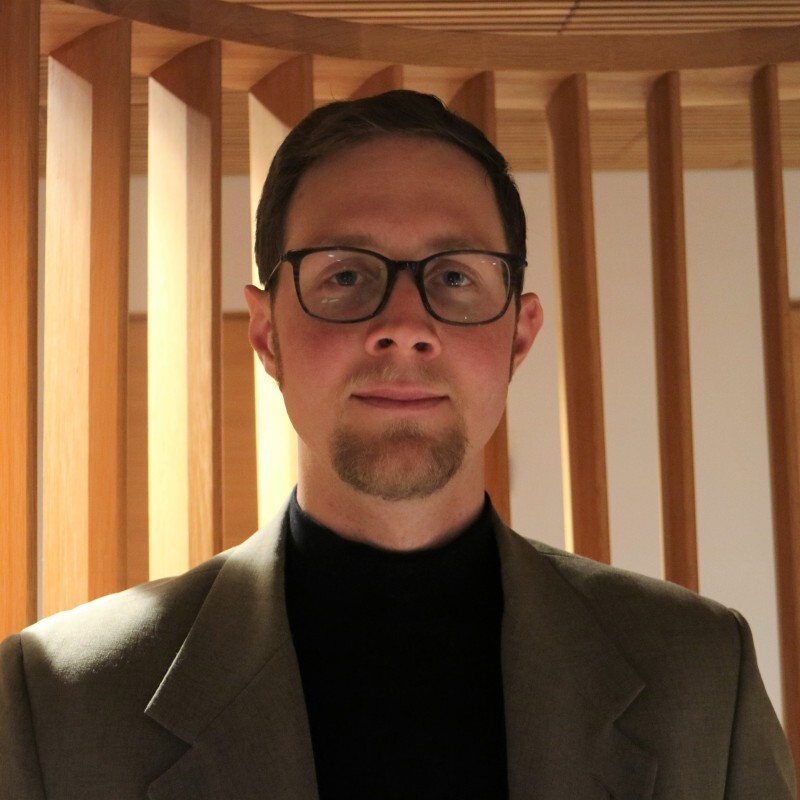 My research focuses on the history of the Organization of Security and Cooperation in Europe (Conference and CSCE prior to 1995) in the 1990s as well as Finnish and Russian foreign policy during this period. My Ph.D. dissertation focuses on the 1995-1996 Finnish-Russian Co-Chairmanship of the OSCE Minsk Group -the diplomatic body responsible for mediating the Nagorno-Karabakh conflict between Armenia and Azerbaijan.
My research focuses on the history of the Organization of Security and Cooperation in Europe (Conference and CSCE prior to 1995) in the 1990s as well as Finnish and Russian foreign policy during this period. My Ph.D. dissertation focuses on the 1995-1996 Finnish-Russian Co-Chairmanship of the OSCE Minsk Group -the diplomatic body responsible for mediating the Nagorno-Karabakh conflict between Armenia and Azerbaijan.
As a historian interested in the policy relevance of my research, I attempt to get out of the archives as much as possible and cooperate with historically minded political scientists. My overall research portfolio brings me into contact with the contemporary OSCE in a variety of different ways, from OSCE Archive in Prague to the Secretariat in Vienna and field missions in the South Caucasus and Central Asia.
My ability to maintain knowledge of the OSCE as a living body helps nuance my historical research, as well as inform how my historical research can best benefit the OSCE of today as well as societal understandings of the institution. A primary goal of my research is to apply my historical knowledge for the public good. For me, this means using prudent historical analysis for both interpreting contemporary events in international relations as well as providing policy advice for decision-makers.
Eugenia Pesci (Visiting Fellow @ University of Glasgow 16.3-16.5.23)
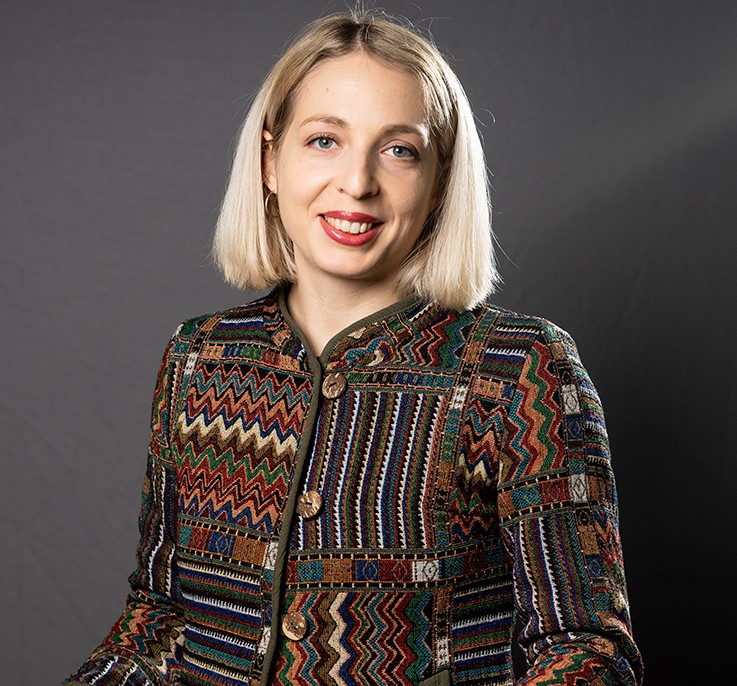 Eugenia Pesci is a doctoral researcher at the Aleksanteri Institute, University of Helsinki, and early-stage researcher in the Marie Skłodowska-Curie International Training Network “Markets”. Her research interests focus on the transformation of labour market governance in Central Asia within the context of post-socialist capitalist development. In her thesis, Eugenia explores the factors shaping labour market institutions and policies in Kyrgyzstan and Kazakhstan, particularly focusing on the diffusion of activation policies. She is interested in understanding how the political-institutional context shaping labour market policies and the organizational factors of public employment services are reflected in the implementation of policies at the street-level. Her analysis relies on qualitative data from in-depth interviews with a wide range of local and international experts and civil servants, participant observations, and analysis of official labour legislation, labour market policies and programs, and reports from international organizations. She holds a Master’s of Arts in East European Studies from the University of Bologna, Italy.
Eugenia Pesci is a doctoral researcher at the Aleksanteri Institute, University of Helsinki, and early-stage researcher in the Marie Skłodowska-Curie International Training Network “Markets”. Her research interests focus on the transformation of labour market governance in Central Asia within the context of post-socialist capitalist development. In her thesis, Eugenia explores the factors shaping labour market institutions and policies in Kyrgyzstan and Kazakhstan, particularly focusing on the diffusion of activation policies. She is interested in understanding how the political-institutional context shaping labour market policies and the organizational factors of public employment services are reflected in the implementation of policies at the street-level. Her analysis relies on qualitative data from in-depth interviews with a wide range of local and international experts and civil servants, participant observations, and analysis of official labour legislation, labour market policies and programs, and reports from international organizations. She holds a Master’s of Arts in East European Studies from the University of Bologna, Italy.
Gabit Gabdullin(1.4-31.5.23)
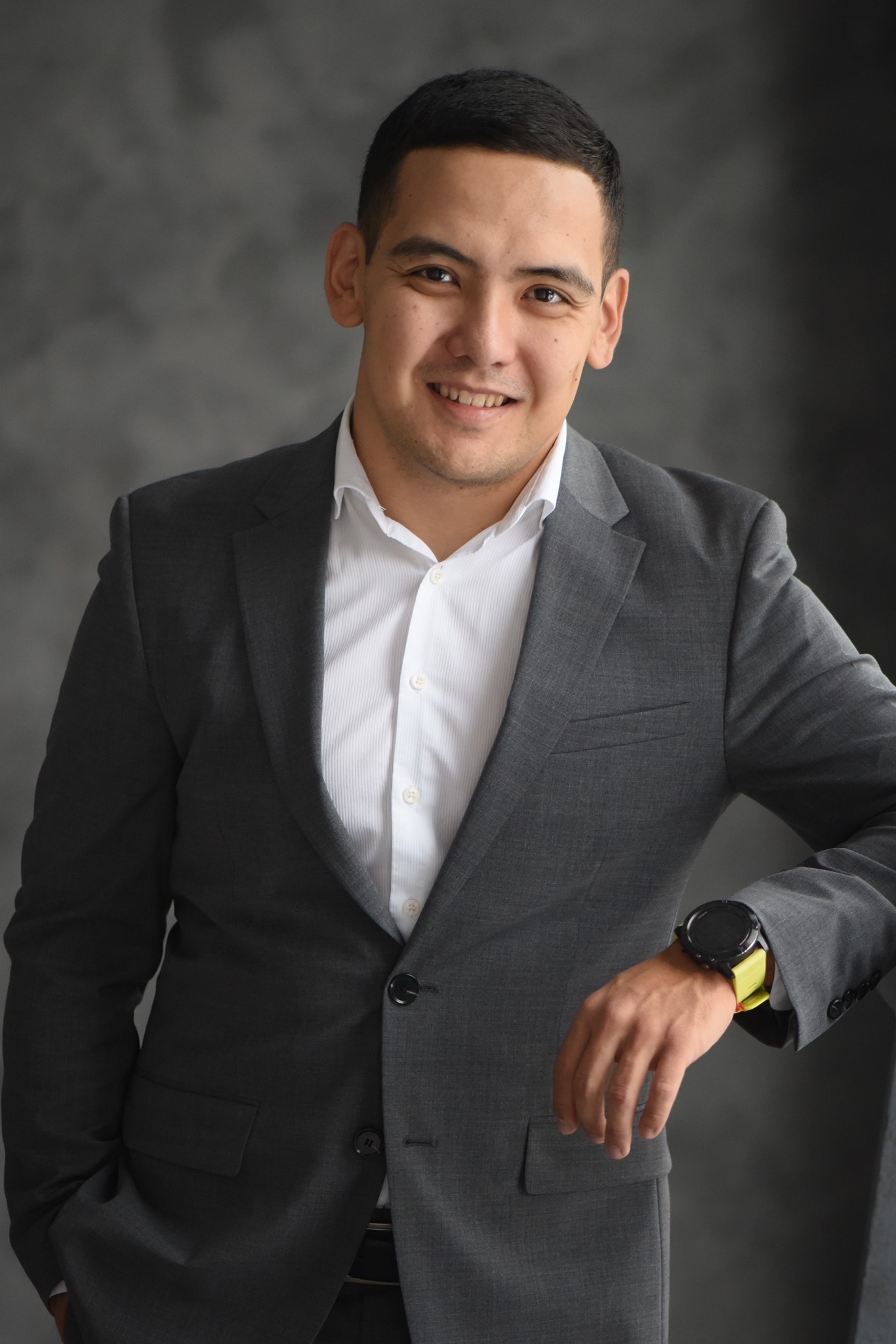 Before staring my PhD journey, I was working for the government of the Republic of Kazakhstan. Namely, my professional journey started in the Ministry of Finance where I have supervised all financial network connections with projects EBRD, World Bank, IMF, Eurasian Bank of Development and other important international financial organizations on the territory of the Republic of Kazakhstan. My goal after receiving the doctoral degree is to apply my knowledge in a managerial policy-making position at the national level. My PhD thesis can contribute to a more people oriented foreign policy design.
Before staring my PhD journey, I was working for the government of the Republic of Kazakhstan. Namely, my professional journey started in the Ministry of Finance where I have supervised all financial network connections with projects EBRD, World Bank, IMF, Eurasian Bank of Development and other important international financial organizations on the territory of the Republic of Kazakhstan. My goal after receiving the doctoral degree is to apply my knowledge in a managerial policy-making position at the national level. My PhD thesis can contribute to a more people oriented foreign policy design.
The topic of the PhD dissertation concerns the assessment of the public opinion toward the Eurasian Economic Union in Kazakhstan. The topic is relevant given both contemporary regional and domestic changes that shape the perception of general population of Kazakhstan’s participation in the EAEU. Currently, I am in the final stage of my field work in Kazakhstan during which I have been conducting interviews and survey questionnaires with general population in different parts of Kazakhstan. Hence, I would like to devote the two-month offered by the fellowship to data analysis and interpretation of the results that I will have obtained following the end of my fieldwork. I with Saniya Maliklbayeva published chapter “The Rise of Anti-Eurasian Sentiment in Kazakhstan” for the book Securitization and Democracy in Eurasia, Transformation and Development in the OSCE Region.
Apart from the opportunity to work on my data analysis part of my thesis, I am particularly attracted by the possibility to in expanding my research network. I am convinced the Institute is a right place to meet scholars and academics from different disciplines and engage in the scholarly dialogue. The opportunity to have an academic supervisor from the Institute would be of a great assistance to have a different perspective and approach toward my research.
Sophie Qiaoyun Peng (1.2-31.3.23)

I am a doctoral candidate at the University of Glasgow and the title of my thesis work is “Lace Up the North: Exploring the Meaning of Hand-knitted Woollen Lace Products in Shetland (Scotland) and Haapsalu (Estonia)”. As two forms of hand-knitted woollen lace products which share various similar characteristics, Shetland lace and Haapsalu lace both hold an important role in local economy from their heyday back in the nineteenth century to our time. The invention of these two forms of lace resulted in contributions to local household income for almost two hundred years. Although Shetland (Scotland) and Haapsalu (Estonia) may sound less relatable due to their geographical distance, the similarities in producing Shetland lace and Haapsalu lace are much more than random coincidences.
Through this comparative case study, I aim to explore the relations between lace and place, and how lace has developed from being a crucial part of making additional income to a crucial part of leisure and local-branding. I divide this project into two parts: (1) discovering how people work on lace traditions in Shetland and Haapsalu; (2) reasoning how lace traditions “work” on people in forms of firming a shared local identity in both places. By comparing the cultures of lace-knitting businesses (from family level to union/organisational level) in Shetland and Haapsalu, I propose a pattern of evolution of heritage handicrafts, and look further on potential benefits that heritage handicrafts can make in a contemporary context.
This research project raises awareness of the importance of family handicraft traditions in two specific areas and the impact of lace-making from culturally-distinctive areas, i.e. Shetland to the UK (Norwegian influence), Haapsalu to Estonia (Swedish influence). My work focuses on the usage from both historical and contemporary perspectives of hand-knitted lace in Shetland and Haapsalu from the mid-nineteenth century to the present time, i.e. the first two decades of the twenty-first century, and the importance of lace as local symbols in Shetland of Scotland and Haapsalu of Estonia. While archival research on history of both laces is indispensable for investigating and summarising the historical applications, this research project weights more on the contemporary application of Shetland and Haapsalu lace, and how lace being used as a symbol to construct distinctive local identities of Shetland and Haapsalu compared to the “mainlands” where they belong to: Scotland and Estonia.
2022
Mikhail Demianenko (3.10-3.12.22)
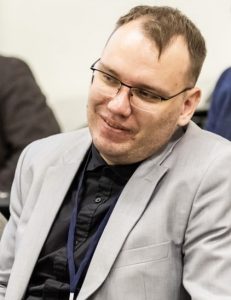
I am a doctoral student at the program of Russian History at the European University at St. Petersburg (EUSP). I also work as a researcher at the Center of Modernization Research at the EUSP.
I graduated from the Novosiberian State University with a B. A. in social philosophy in the 2016. Then, I decided to change my academic field, and graduated from EUSP with an M. A. in Russian imperial history in a comparative perspective in 2019. My research interests include comparative history of empires (with particular focus on the 18th Century), history of governance, and historical sociology. Now, I have two research project in progress.
My first project is my PhD thesis, titled “Imperial Authorities and Local Law in the Age of Catherine II (based on materials of Belorussian Gubernias), 1772-1792”. It is devoted to the process of administrative integration of the territories that became a part of the Russian Empire after the First Partition of Poland (1772). My focus is on the process of interaction of the Russian authorities with the local law. Polish-Lithuanian civil law remained in action on these territories until 1840, and appellations to the local law were an important part of the imperial legal discourse. I hope that my research will be able to deconstruct the outdated narrative of “absence of legal consciousness” inside the Russian authorities during the 18th Century. I am going to finish the historiography and comparative parts of the research during my stay in Helsinki. The rich collections of the National Library and Helsinki University contain enormous source of material and inspiration.
My second project is a result of my work at the Center of Modernization Research. It is devoted to the dynastic and symbolic aspects of the Russian external policy in the 18th– the first half of 19th Centuries, and their role in the process of modernization of the Russian state and society. The project is focused more on the historical sociology’ manner rather than a “purely” historical one. I hope my visiting period in Helsinki will be a great contribution in this project which is still in the early stages.
Anastasia Meylakhs (12.9.-11.11.22)
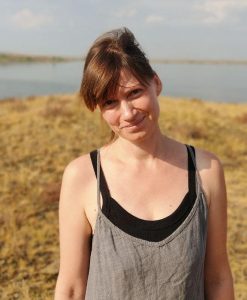
I am a PhD candidate in the doctoral programme of the Higher School of Economics at Saint-Petersburg. My main research topic is a Russian language segment of online marketplaces for illegal goods. My PhD thesis describes a mixed-method study of the cryptomarket “Hydra”. The recent closing down of large online platforms abroad and on the territory of the Russian Federation has led to the emergence of new, more powerful and stable markets on the Internet. This fact shows that it will be impossible, in the near future, to eradicate the virtual method of selling and buying drugs, stressing the need for thorough research of this phenomenon.
Most of my recent projects focus on Russian government policy in substance abuse, HIV-infection prevention and treatment, high-risk social networks, and medical services quality monitoring.
Fedor Veselov (1.5.-30.6.22)
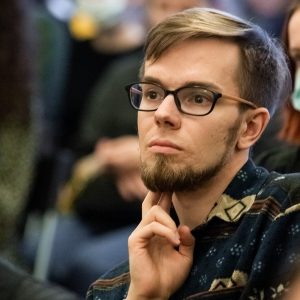
I am a doctoral student of urban anthropology at the European University at St. Petersburg. My research interests are in the field of critical urban studies and cultural studies but are not limited to them. I have a sociological background at the Higher School of Economics in St. Petersburg (BA program), at the European University at St. Petersburg, and at the Central European University (Budapest) with research topics ranging from ‘what people do in an art museum (the Hermitage case)’ to the ‘memory of political repressions in the urban space (the Last Address memorial project)’ and ‘conflictual cohabitation of hostels and locals in the center of St. Petersburg’. I was also engaged in several applied projects on urban public spaces in St. Petersburg. At the moment apart from doing my PhD, I work on a collective research project on flood-prone communities in Russia.
My doctoral research focuses on controversies of urban nighttime leisure spaces and specifically considers how these spaces are historically produced and how they are constructed both socially and materially on the level of everyday life. The research design is a single case study of Rubinstein Street in the center of St. Petersburg.
Since 2010s Rubinstein Street has been known as the main bar and restaurant street in Russia and even in Europe. There are more than 80 permanent food and alcohol venues on the 750-meter street. There are also other activities such as city-wide festivals, tourist routes, street trading, horse riding, etc. This carnivalesque situation is a conflictual one as well because Rubinstein Street is simultaneously a widely known recreational zone and a residential space. Residents live in the epicenter of the party; they often cannot sleep because of the loud music, the buzz of the crowd, and cigarette smoke. Moreover, the infrastructural capacities of buildings are not suitable to host such numbers of visitors, which leads to problems with canalization, electricity, garbage system, etc. As a result, there is a long-term protest of local activists against the hyper-concentration of leisure venues.
My research aim is, first, to uncover the economic, cultural, and political processes that led to the creation of this urban space. Second, the dissertation explores ways in which residents, employees, visitors as well as infrastructures and material objects take part in the ongoing process of socio-spatial transformation of this conflictual space.
The conceptual frame of my work is based on the dialectic between two contrasting analytical approaches to urban space: critical urban theory and assemblage theory. In my dissertation, I also use a bunch of anthropological literature on urban public space and post-socialist urban process along with extensive literature on the urban night-time economy. In my fieldwork, I employ ethnographic methods: in-depth interviews, participant observation, tracking and timing of activities, digital ethnography, and the historical analysis of secondary sources. I have spent days or mainly nights at different bars and restaurants on Rubinstein Street as a visitor and have taken interviews with employees, owners, and visitors of venues as well as with politicians, journalists, residents, and other actors.
Visiting period in Helsinki would be a perfect time to write one chapter of the dissertation and a conclusion, transform another chapter into a paper and discuss the whole dissertation project with colleagues to prepare for the pre-defence in June.
2020
Kaisla Kaheinen
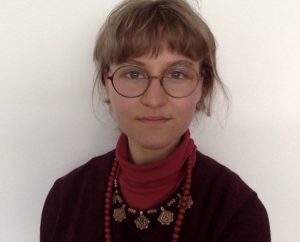 I am a PHD candidate in the doctoral programme of language studies (HELSLANG) at the University of Helsinki, where I graduated with my Master’s degree in Finno-Ugric linguistics in 2020. My main interest are the Samoyedic languages, spoken in Western Siberia along the Yenisei and its tributaries, as well as on the Arctic Coast. After completing my Master’s thesis on self-repair in Nganasan spoken interaction, it was quite natural to continue working on the language in my doctoral dissertation. My PHD project looks into the history of Nganasan lexicon, focusing on a group of words that might originate in an unknown language spoken in Northern Siberia before speakers of Samoyedic migrated there. This substrate vocabuary works as a key to Nganasan language history, as well as to the research of prehistoric language contacts in this part of the Arctic.
I am a PHD candidate in the doctoral programme of language studies (HELSLANG) at the University of Helsinki, where I graduated with my Master’s degree in Finno-Ugric linguistics in 2020. My main interest are the Samoyedic languages, spoken in Western Siberia along the Yenisei and its tributaries, as well as on the Arctic Coast. After completing my Master’s thesis on self-repair in Nganasan spoken interaction, it was quite natural to continue working on the language in my doctoral dissertation. My PHD project looks into the history of Nganasan lexicon, focusing on a group of words that might originate in an unknown language spoken in Northern Siberia before speakers of Samoyedic migrated there. This substrate vocabuary works as a key to Nganasan language history, as well as to the research of prehistoric language contacts in this part of the Arctic.
During my time as a visiting research affiliate I studied an unpublished collection of Nganasan vocabulary cards, gathered in the beginning of 20th century by ethnographer A. A. Popov and archived at the museum of anthropology and ethnography Kunstkamera in St. Petersburg. I hope that the data I gathered can later be used to create language resources for the modern Nganasan speaker community as well.
Iuliia Gataulina
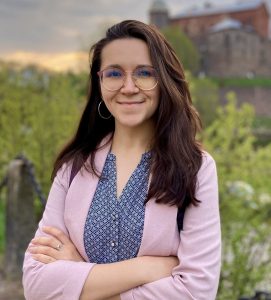 I am a doctoral student at Tampere University, Finland. My research is situated within political science and International Relation. At the moment, I work as part of the research project “Assembling Postcapitalist International Political Economy” hosted by the Politics department at Tampere University. The main research task of the thesis is to critically examine whether and how “neoliberalization” reshapes the contemporary Russian field of higher education. However, neoliberalization is a contested concept. My interest lies in, firstly, problematizing claims about neoliberalization of higher education in the context of postsocialist realities, authoritarian political system and state control. Secondly, I pay attention to territorial differentiation within the Russian Federation, i.e. to differences in these dynamics between what might be referred to as the “center” and “periphery”.
I am a doctoral student at Tampere University, Finland. My research is situated within political science and International Relation. At the moment, I work as part of the research project “Assembling Postcapitalist International Political Economy” hosted by the Politics department at Tampere University. The main research task of the thesis is to critically examine whether and how “neoliberalization” reshapes the contemporary Russian field of higher education. However, neoliberalization is a contested concept. My interest lies in, firstly, problematizing claims about neoliberalization of higher education in the context of postsocialist realities, authoritarian political system and state control. Secondly, I pay attention to territorial differentiation within the Russian Federation, i.e. to differences in these dynamics between what might be referred to as the “center” and “periphery”.
The research visit to European University in St Petersburg allowed me to make progress with my research in two directions: theoretically/analytically and empirically. I have participated in the discussions with researchers and students who work with the actor-network theory, which ontological underpinnings are similar to the assemblage theory that I imply in my research. Moreover, the visit provided me with an opportunity to collect additional ethnographic data in order to analyse the workings of Russian university governance from the angle of a non-state research university.

